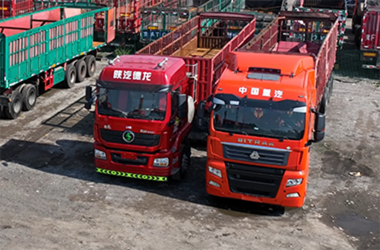Innovative Solutions in Construction Equipment and Plant Management for Enhanced Efficiency
Understanding Construction Plant A Key Element in Modern Construction Projects
In the realm of construction, the term “construction plant” refers to a variety of machinery, equipment, and vehicles that are essential for executing building projects efficiently. This term encompasses a broad range of items, from large earth-moving machines to portable tools, all designed to facilitate various construction processes. Understanding the significance of construction plants, their types, and their roles can enhance project efficiency and safety in the fast-paced construction sector.
Types of Construction Plant Equipment
Construction plant equipment can be broadly categorized into several types
1. Earth-Moving Equipment This includes machines primarily used for excavation and grading. Backhoes, bulldozers, excavators, and graders fall under this category. They are crucial during the initial phases of construction when the land needs to be cleared and prepared for building.
2. Lifting Equipment Cranes, hoists, and cherry pickers are essential for lifting heavy loads and facilitating vertical work. Their ability to reach heights and move heavy materials is indispensable in multi-story constructions, allowing for the efficient movement of materials from one level to another.
3. Concrete Equipment As one of the primary materials in construction, concrete requires specialized equipment for mixing, transporting, and placing. Concrete mixers, pumps, and vibrators are among the tools used to ensure that the concrete is mixed properly, delivered on time, and applied correctly.
4. Road Construction Equipment Road rollers, pavers, and asphalt mixers are specialized machines used in the construction and maintenance of roadways. These machines ensure that roads are built to specifications and are durable enough to withstand the wear and tear of daily traffic.
5. Compacting Equipment To ensure a solid foundation for any construction project, compacting the soil is vital. Rollers, plate compactors, and rammers are commonly used for this purpose, as they help compact soil and asphalt to prevent future settlement and enhance stability.
construction plant

6. Specialized Equipment Many construction projects may require specialized machinery, such as demolition equipment used to tear down existing structures or tunneling machines for underground construction. These tools are often designed for specific tasks that regular equipment cannot handle.
The Role of Construction Plant in Projects
The integration of construction plants into a project can dramatically improve efficiency and accuracy. With the right machinery, construction teams can complete tasks in a fraction of the time it would take manually. For instance, using excavators for digging is substantially faster and more effective than traditional handheld tools.
Furthermore, construction plants contribute to enhanced safety on job sites. Many modern machines are equipped with advanced safety features such as automated controls, which help reduce the risk of accidents. Additionally, using larger, mechanized equipment minimizes the number of workers placed in potentially hazardous situations, thereby lowering the incidence of workplace injuries.
Maintenance and Management
Effective management and maintenance of construction plant equipment are crucial for maximizing productivity and minimizing downtime. Regular inspections and servicing can prevent unforeseen breakdowns and ensure that machines operate at peak efficiency. Construction managers often need to develop a keen understanding of the operational requirements and limitations of the equipment used on-site to allocate resources effectively.
Additionally, training workers to operate machinery safely and efficiently is a vital component of managing construction plants. Ensuring that employees are knowledgeable about safety protocols and the correct use of equipment can enhance overall site safety and efficiency.
Conclusion
In conclusion, construction plants are the backbone of the modern construction industry, providing the necessary equipment to execute projects of all scales effectively. From earth-moving machinery to specialized tools, these assets not only enhance operational efficiency but also contribute to safety on construction sites. As technology continues to advance, the construction industry can anticipate further innovations in construction plant machinery that will drive productivity and safety to new heights. Understanding and leveraging the full potential of construction plants is vital for any construction manager striving for excellence in project execution.
-
SINOTRUK HOWO 84 Electric Dump Truck for Eco-Friendly Heavy HaulingNewsJul.26,2025
-
The Fast 16-Gear Manual Transmission Assembly for Heavy TrucksNewsJul.25,2025
-
Mercedes Benz Actros 1848 42 Tractor Truck for Sale - Reliable PerformanceNewsJul.24,2025
-
High-Quality Water Pump Assembly for Sinotruk Trucks – Durable & ReliableNewsJul.23,2025
-
Premium Truck Engine Antifreeze Coolant Fluid for Heavy Duty VehiclesNewsJul.22,2025
-
FOTON View G7 Mini Bus: Affordable & Spacious TransportNewsJul.22,2025
Popular products

























